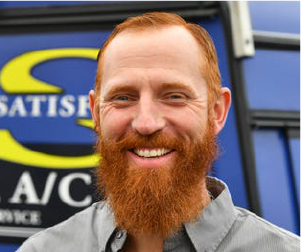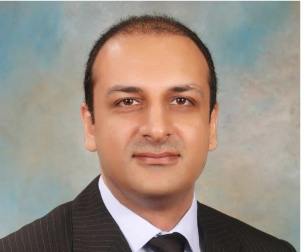Opportunity Knocks: Part 2: One Industry, Many Careers. Explore More HVAC Pathways to Success
June 16, 2021
The HVAC industry is built on the passion and skills sets of many professionals. Read on to explore the variety of roles within HVAC and how to get started.


With help and guidance from the Rees Scholarship Foundation in Part 1 of this series, starting a career in the HVAC industry as a technician can be a great career choice for those interested in job security, unlimited growth, and continuous personal and professional development.
The HVAC industry also extends beyond technicians, yielding a variety of exciting professional pathways that all stem from the essential status of keeping people comfortable and safe in their living, work and business environments. Each tapping into unique skill sets and anchored in innovation, passion and collaboration, read on for our second installment blog series in which we talk to those are thriving in careers within the HVAC industry and their recommendations on how to find your passion and drive working in HVAC distribution, engineering, supply chain management, and business ownership.
Contractors:
 The benefit of being part of a local HVAC business is the immediate connection to working with your community and building a business that will always be in demand for future generations. Jeremy Salzbrun, CEO of H&S Heating and Air Conditioning and a Ruud Pro Partner (Ruud is a member of the Rheem® family of brands), located in central Minnesota, takes his job and purpose as a contributing member of the community very seriously—even when he’s being good-humored.
The benefit of being part of a local HVAC business is the immediate connection to working with your community and building a business that will always be in demand for future generations. Jeremy Salzbrun, CEO of H&S Heating and Air Conditioning and a Ruud Pro Partner (Ruud is a member of the Rheem® family of brands), located in central Minnesota, takes his job and purpose as a contributing member of the community very seriously—even when he’s being good-humored.
Jeremy and his wife Emily include the whole family in the business marketing plan, creating funny music videos and memorable marketing campaigns that highlight their commitment to providing excellent service for people’s essential needs and comfort.
“I came up with the idea of Ginger Man because I truly believe that HVAC businesses wear capes, we save the day! We’re on call 24 hours a day, checking on air conditioning, someone else needs heating, checking about carbon monoxide and gas leaks,” says Jeremy, “You can call us at any time, it’s never an inconvenience.” Indeed, when passing through Central Minnesota, keep an eye out for the Ginger Man billboards (sometimes featuring his son, Ginger Boy!), who’s ready to help anyone find comfort and quality in their air solution systems.
As a second-generation HVAC contractor, Jeremy says because of his years spent in the family business, he has seen first-hand how important the relationship is between his company and his customers. Because his HVAC business is helping his friends and neighbors, Jeremy feels especially compelled to give back to the community that he relies on for business, just as they rely on him for air quality and comfort.
“The biggest thing is when I’m sitting with customers at the kitchen table—this is why you partner with a family business. We’re with you before, after, during—24 hours a day,” says Jeremy. “At the end of the day, HVAC brings warmth and comfort to people who are in need of something essential. There’s nothing more joyful or humbling than taking care of those needs of the community.”
Distributors:


“There are a lot of different entry points into the distribution side. One of the most popular roles is sales, where someone helps contractors with product selection, trouble-shooting issues, warranties, whatever the customer needs, and really owns those customer relationships,” says Renata Morgan, General Manager of Business Administration for Century A/C Supply and Air Management Supply.
“What I’ve typically seen is that people tend to move up the channel rather than down,” says Renata, pointing to the age gap for skilled and ambitious HVAC professionals. “There is not a lot of younger blood coming into it right now. Many people think you need a four-year degree to have certain jobs and I think we’re a very forgiving industry in that respect. Particularly in the HVAC industry, we have job security. You’ll never be able to outsource your furnace overseas—this is a hands-on, in-home service industry.”
In her 14-plus years in the HVAC industry, Renata has witnessed first-hand how the industry continues to rise to the challenges and continue to evolve for the betterment of the industry, and for enhancing the quality of people’s lives.
“Coming off 2020, I think the one thing that the HVAC industry did really well was utilize creativity and problem-solving. Many people are used to counter service, and a lot of companies quickly switched to drive-by or curbside service, and a lot of ingenuity, creative brainstorming, problem solving happened early on,” says Renata.
“In Texas, where it is so hot, seeing people and companies coming in, looking for ideas to help their customers stay cool, was just so uplifting. We’re helping grocery stores, nursing homes, and assisted living places stay open—it made me proud to be part of the solution in a year that had so many challenges. We had an integral role in keeping these other essential businesses running.”
Renata says that had she known in high school about other possibilities outside of a four-year college, she might have dreamed a little bigger about how she wanted to design her professional life. She feels lucky to have found a profession and an industry that nurtures the entrepreneurial spirit, and encourages every member—whether a technician, an engineer, a salesperson, a contractor, or distributor—to continue to learn and develop their skills.
“One of my favorite things about this job is the company—we have a phenomenal culture, very laid back and familial. We are empowered employees providing exceptional service,” says Renata. “Fourteen years later, I’m here because of the people I work with and the culture, which is very common with the HVAC industry—it’s a very friendly and warm industry.”
As for the job itself, she notes, “I’ve had the chance to learn about a lot of different areas in the business—we get the benefits of being able to do and learn many different aspects of the industry, which provides opportunities to improve yourself and the company. It’s so supportive.”
Engineering:


“Engineering allows for expanding your horizon—how you do it depends on what you want to do. You want to get the background and education, and continue with certification, training, seminars, whatever you can to keep learning,” says Raheel Chaudhry, Senior Product Manager for Electronics and IoT Devices for Rheem. He notes that whichever path engineering takes you down, what matters most is a collaborative attitude.
“Problem-solving, adaptability, and good communication are very important attributes but the thing I’d rate the highest is collaboration. You learn a lot from collaborating, you build a rapport with others, both teaching and learning from each other.”


“I am an engineer that works with the law department, and sometimes acts as a translator between engineering-ese and legales. I don’t know that there’s much to stop you from doing whatever you have the ambition or the goals to do.”
Randy’s career started when he was still a kid, watching his father and brother run the family HVAC business while he swept floors and “did every dirty, nasty job” his dad could ask of him. He pursued a degree in computer science before finding his calling in mechanical engineering as a way to keep his career options open. He found a position as a forensic engineer with Rheem and 31 years later, loves that there are still new things to discover and figure out within his job.
“I’m not a ‘make your bed everyday’ kind of guy, I don’t like too much routine. Though I’ve been here for 31 years, I can honestly say that there are things I’m still learning, and that’s the best part,” says Randy. “You know, I tell these managers, ‘Look, you’ve got to give your people that opportunity to fail.’ Otherwise they’re never going to grow in their position,”
“As an engineer at Rheem. I am absolutely positive that it is a great amount of satisfaction to walk into someone’s home and see Rheem appliances sitting there, and knowing that you had a part in developing that,” says Randy “I’m not a corny guy, but we’re changing the world with the product that we manufacture. We would not have the Florida that we all love and enjoy without air conditioning! Air conditioning has literally changed the world, and it continues to change the world. You have to have pride to take part in that.”
Supply Chain:


“Our job is to have the right product at the right time at the right quantity. That’s how we impact the overall health of the organization. It’s all analytics-driven, all data-driven—you have to speak with data and how you use that data is dependent on the analytical horsepower,” says Gunjan Gupta, Senior Manager Sales and Operation Planning at Rheem.
“The people required for SCP need to have good analytics capabilities and also be extremely collaborative, because you cannot work just looking at data, you have to have intelligence gathering from various parts of the organizations.”
Whether you want to continue the family business, chart your own successful path in distribution and sales, or be on the cutting-edge of designing products that have longevity and impact on the community and beyond, a career in HVAC offers a multitude of ways for the inquisitive, problem-solving, collaborative, and creative to find a rewarding, successful career. HVAC professionals might not wear capes, but by bringing air quality, comfort, heat, and cooling systems to the public, the HVAC professional might be the closest thing to a modern-day superhero.

























